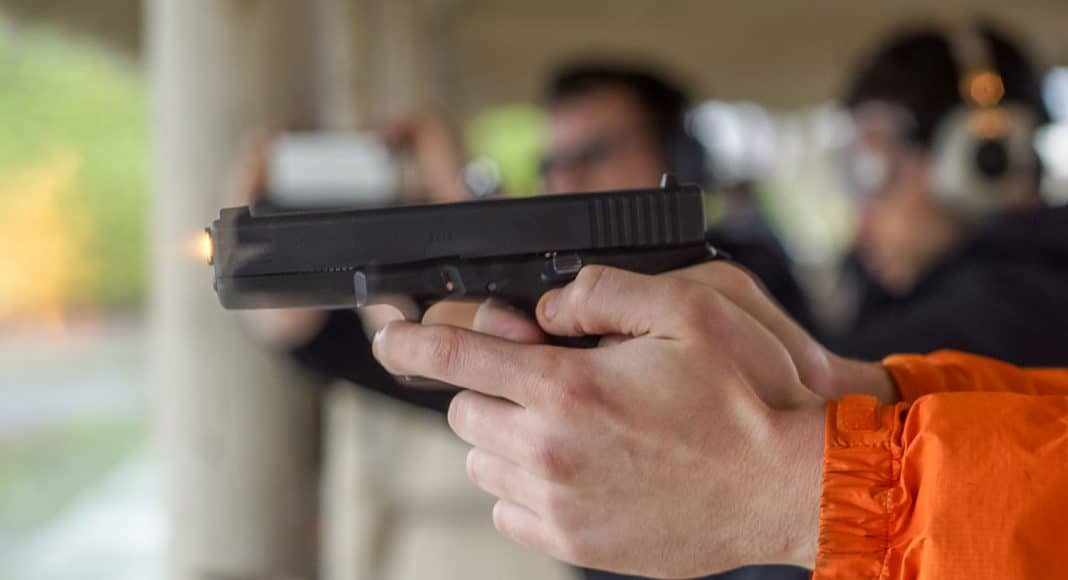A federal ban on the sale of firearms to cannabis consumers does not violate the Second Amendment, a federal appeals court ruled this summer.
The 9th U.S. Circuit Court of Appeals ruling applies to the nine Western states that fall under the court’s jurisdiction, including California, Washington and Oregon — all hotbeds of cannabis consumption. California is the largest and the first state to allow medical marijuana. Washington and Oregon have legalized cannabis outright.
In essence, the court ruled that medical marijuana patients — cancer victims, PTSD sufferers and those with intractable pain — do not have a right to Second Amendment protection.
S. Rowan Wilson filed a lawsuit after she a firearms dealer refused to sell her a gun because he was aware Wilson carried a medical marijuana card. According to Wilson, she does not even consume marijuana — she obtained her card as an act of solidarity for the legal cannabis movement. She is challenging the Bureau of Alcohol, Tobacco, Firearms and Explosives directive instructing dealers not to sell guns to customers possessing medical marijuana certification.
Wilson was not available for comment, but posted this on her Facebook page:
Senior District Judge Jed Rakoff said that marijuana use “raises the risk of irrational or unpredictable behavior with which gun use should not be associated.”
“The panel held that plaintiff’s Second Amendment claims did not fall within the direct scope of United States v. Dugan, which held that the Second Amendment does not protect the rights of unlawful drug users to bear arms,” said the court’s ruling summary.
… Applying intermediate scrutiny, the panel nevertheless held that the fit between the challenged provisions and the Government’s substantial interest of violence prevention was reasonable, and therefore the district court did not err by dismissing the Second Amendment claim. The panel rejected plaintiff’s claims that the challenged laws and Open Letter (issued by the Bureau of Alcohol, Tobacco, Firearms, and Explosives to federal firearms licensees, which prevented plaintiff from purchasing a firearm) violated the First Amendment.
Wilson’s attorney, Charles Rainey planned to “press on” with the case. “We are going to litigate this, exhaust whatever remedies we have,” Rainey said. “When this (ATF) letter was issued, it was issued as part of a deliberate attempt by the (U.S. Department of Justice) to quell a political movement.
“We live in a world where having a medical marijuana card is enough to say you don’t get a gun,” Rainey continued, “But if you’re on the no fly list your constitutional right is still protected.”
The National Rifle Association has not issued a comment on the ruling. But other groups are speaking out against the decision
“There is no credible justification for a ‘marijuana exception’ to the U.S. Constitution,” Paul Armentano, deputy director of the National Organization for the Reform of Marijuana Laws said. “Responsible adults who use cannabis in a manner that is compliant with the laws of their states ought to receive the same legal rights and protections as do other citizens.”
“It is incumbent that members of Congress act swiftly to amend cannabis’ criminal status in a way that comports with both public and scientific opinion, as well as its rapidly changing legal status under state laws,” Armentano concluded.
The Marijuana Policy Project said in a statement that “seriously ill patients who use medical marijuana should be treated the same as patients who use any other doctor-approved medication.”


